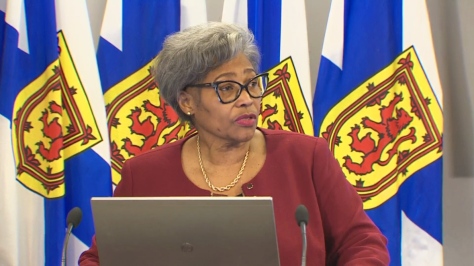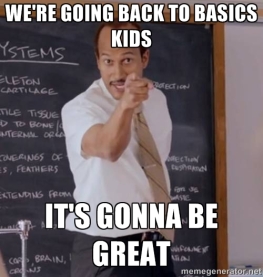I wrote the article below a couple of months ago for Aviso (pdf link), the Nova Scotia Teachers Union’s magazine. It feels particularly relevant in light of the Glaze Report, the Liberal government’s latest package of education “reforms.” Dr. Avis Glaze’s recommendations (including shutting down elected school boards, creating a new certifying body for teachers and forcing administrators out of the teachers’ union) all of which been accepted in “spirit” by education minister Zach Churchill, are straight from the textbook of the corporate-driven education reform movement imported from the U.S. This is the movement that bases all its policy decisions on standardized test scores and blames teacher unions for any and all problems in the education system.
If the Liberal government wants to improve student test scores (and Glaze’s contention that our students are “left behind” is highly questionable at best) then a better solution would be to address child poverty. (Of course, we shouldn’t fix child poverty to improve test scores; we should fix child poverty because there’s no morally defensible reason that kids – or anyone – should live in poverty.)

Recent numbers from Statistics Canada show that Nova Scotia has the highest child poverty rate in the country (tied with New Brunswick) at 22.2 per cent. That’s more than one out of every five of the kids who sits in our classrooms every day.
We’ve heard numbers like this before. We become numb to them as they make headlines once or twice a year, then disappear from the news.
The kids they represent, though, don’t disappear from our schools quite so easily. We slip them occasional lunch money, let them raid our pencil collections and push them to their fullest potential. But is there anything else we can do?
I believe there is. As individual teachers we of course strive to make a difference in each one of our students’ lives. But as we know from being in a union, we can accomplish much more through collective action.
During the past year’s labour dispute, teachers benefited from the support and solidarity of parents, students, and workers in other unions. Similarly, our union often takes a stand in support of other workers in the province, and teachers across the country or even around the world.
A logical extension of this solidarity would be for the union to be involved in fights for concrete policy changes that would improve the lives of the poorest Nova Scotians. Here are some easy examples:
A significant increase in the minimum wage. Ontario and Alberta are in the process of increasing their minimum wages to $15. Nova Scotia’s minimum wage, at $11.00 an hour (lowest in the country), is well below what is needed for a single person working full-time to live, let alone someone with children or other dependents. A “Fight for 15” campaign is getting underway to increase minimum wage in this province; our union should support it wholeheartedly.
Raising income assistance rates. Those people who, for whatever reason, cannot work, rely on income assistance to survive. Many of these people live with physical and/or mental disabilities, chronic illness, or mental health issues. Yet income assistance rates have barely budged in the past several years. The monthly shelter allowance for a family of 3 ($620) is well below market housing costs, and basic personal allowances are barely enough to buy food. A person’s illness or disability shouldn’t condemn them and their family to life in poverty; rates need to rise to bring families above the low-income cut-off (a.k.a. the “poverty line”).
Affordable, universal early childhood education. The cost of childcare for children below school age is prohibitive for a great many parents. For parents in low-wage jobs, working a job instead of staying home with kids can barely be worth it once daycare costs are factored in. For single parents (90 per cent of whom are women), the decision whether or not to work outside the home can be next to impossible. Election campaigns have have seen some parties promise universal child care programs, but these fizzle or are forgotten post-campaign (or the party that promised them fails to get elected).
Universal low-cost child care pays for itself with increased tax revenue coming from parents of young children being who can more readily enter the workforce. Programs like this exist in Quebec and several European countries and are more effective than tax refunds and benefits at ensuring access to quality care.
Rent control and investment in social and affordable housing. About a quarter of Canadians, and more than 40% or renters, spend more than 30% of their income on housing costs, a common measure of housing affordability. Rent control (whereby rent could not be raised more than a given percentage per year) and other policy measures can improve housing affordability for those who need it most. A stable living situation is perhaps the most fundamental piece of the puzzle of poverty: without a home, it’s hard to do much else.
—
These aren’t impossible ideas. They’re practical, feasible solutions to what is often viewed as an intractable problem. Furthermore, although many of these policies have a price tag, they ultimately benefit the economy by increasing the spending power of the poorest citizens – who, unlike wealthier folks, can’t help but spend the extra money in their pockets on necessities.
Many of these policies are already supported by campaigns led by other unions in the labour movement. It wouldn’t take much for a union like ours to plug in. Social media campaigns, letter-writing campaigns, rallies or other events can also engage more members to participate in their union.
For years teachers unions have argued, correctly, that child poverty is one of the main systemic obstacles to student learning in our classrooms. We’ve implored governments to fix the problem, but without always being clear about how they should do so. It’s time to be clear that not only is child poverty a solvable problem, but one which has clear, achievable solutions. These are things our union can help fight for.







